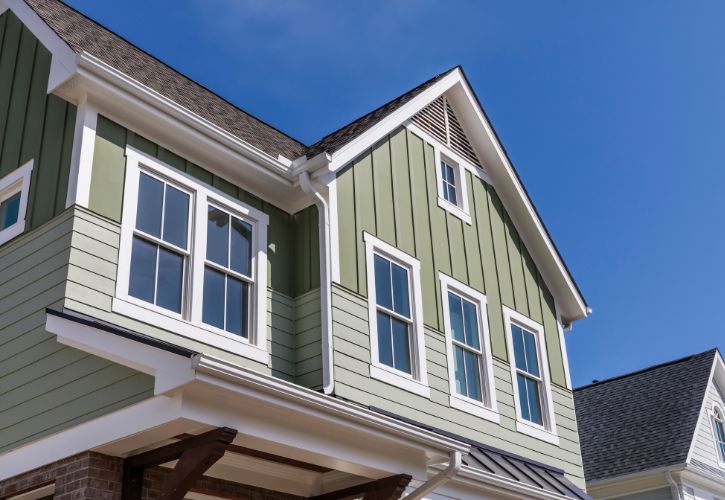Many homeowners are making efforts to lead a more sustainable lifestyle, but they can be unsure about the most effective ways to approach this goal. While most people know about small changes, such as switching to LED light bulbs and using energy-efficient appliances, major home renovations can also allow homeowners to create more sustainable spaces. Learn about five home renovations that contribute to sustainability to consider when undertaking a home improvement project.
Adding Insulation and Sealing Gaps With Caulk
You already know that a lack of insulation leads to heat loss and, subsequently, a significant amount of energy waste. But addressing insulation in the attic alone isn’t enough. By adding insulation to walls and under floors, you can reduce this heat loss, lowering energy consumption (and utility bills).
And don’t stop with insulation inside your home. Sealing gaps and cracks on the exterior of your windows, doors, and siding with caulk prevents air leaks, further enhancing your home’s energy efficiency.
Reducing Water Consumption and Reusing Gray Water
Water conservation is a key element of sustainable living. Installing low-flow fixtures and appliances can significantly reduce your water usage. Furthermore, consider setting up a gray water system that reuses water from your sinks, showers, and washing machines for tasks such as flushing toilets or watering the garden. Such systems save water and lower your utility bills.
Replacing Windows
Old, drafty windows can be a major source of energy loss in your home. By replacing windows with energy-efficient models, you can improve your home’s insulation and reduce the need for artificial heating or cooling.
Energy-efficient windows are available in many styles and materials that can complement your home’s architectural style. Deciding which type of window to choose for window replacement should take your home’s style into account, along with your personal tastes. This renovation contributes to sustainability and enhances the comfort and value of your home.
Use Recycled or Upcycled Materials in Your Renovation
When undertaking home renovations, consider using recycled or upcycled materials. These could be reclaimed wood, recycled metal, or repurposed furniture. Such materials add unique character to your home and reduce the demand for new resources, contributing to sustainability.
Add Solar Panels
Incentives, tax breaks, and rebates make it worthwhile to consider installing solar panels on your home. Even if you don’t switch 100% of your home’s energy use, the electricity you tap from solar panels and the batteries they feed can reduce your property’s fossil fuel consumption.Major home renovations offer numerous opportunities to improve sustainability in your house and lifestyle. From insulating your home and conserving water to replacing windows and using recycled materials, these changes can have a significant positive impact on the environment. So, the next time you plan a renovation, consider how you can incorporate sustainable practices into your project.
